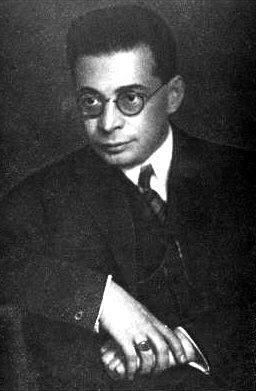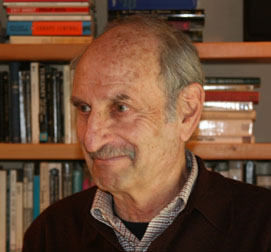Psychoanalysis is a set of theories and therapeutic techniques that deal in part with the unconscious mind, and which together form a method of treatment for mental disorders. The discipline was established in the early 1890s by Sigmund Freud, whose work stemmed partly from the clinical work of Josef Breuer and others. Freud developed and refined the theory and practice of psychoanalysis until his death in 1939. In an encyclopedic article, he identified the cornerstones of psychoanalysis as "the assumption that there are unconscious mental processes, the recognition of the theory of repression and resistance, the appreciation of the importance of sexuality and of the Oedipus complex." Freud's colleagues Alfred Adler and Carl Gustav Jung developed offshoots of psychoanalysis which they called individual psychology (Adler) and analytical psychology (Jung), although Freud himself wrote a number of criticisms of them and emphatically denied that they were forms of psychoanalysis. Psychoanalysis was later developed in different directions by neo-Freudian thinkers, such as Erich Fromm, Karen Horney, and Harry Stack Sullivan.

Otto Rank was an Austrian psychoanalyst, writer, and philosopher. Born in Vienna, he was one of Sigmund Freud's closest colleagues for 20 years, a prolific writer on psychoanalytic themes, editor of the two leading analytic journals of the era, managing director of Freud's publishing house, and a creative theorist and therapist. In 1926, Rank left Vienna for Paris and, for the remainder of his life, led a successful career as a lecturer, writer, and therapist in France and the United States.
Psychoanalytic theory is the theory of personality organization and the dynamics of personality development relating to the practice of psychoanalysis, a clinical method for treating psychopathology. First laid out by Sigmund Freud in the late 19th century, psychoanalytic theory has undergone many refinements since his work. The psychoanalytic theory came to full prominence in the last third of the twentieth century as part of the flow of critical discourse regarding psychological treatments after the 1960s, long after Freud's death in 1939. Freud had ceased his analysis of the brain and his physiological studies and shifted his focus to the study of the psyche, and on treatment using free association and the phenomena of transference. His study emphasized the recognition of childhood events that could influence the mental functioning of adults. His examination of the genetic and then the developmental aspects gave the psychoanalytic theory its characteristics. Starting with his publication of The Interpretation of Dreams in 1899, his theories began to gain prominence.
Relational psychoanalysis is a school of psychoanalysis in the United States that emphasizes the role of real and imagined relationships with others in mental disorder and psychotherapy. 'Relational psychoanalysis is a relatively new and evolving school of psychoanalytic thought considered by its founders to represent a "paradigm shift" in psychoanalysis'.
Richard A. Isay was an American psychiatrist, psychoanalyst, author and gay activist. He was a professor of psychiatry at Weill Cornell Medical College and a faculty member of the Columbia University Center for Psychoanalytic Training and Research. Isay is considered a pioneer who changed the way that psychoanalysts view homosexuality.
Individual psychology is a psychological method or science founded by the Viennese psychiatrist Alfred Adler. The English edition of Adler's work on the subject (1925) is a collection of papers and lectures given mainly between 1912 and 1914. The papers cover the whole range of human psychology in a single survey, and were intended to mirror the indivisible unity of the personality.
Psychoanalytic dream interpretation is a subdivision of dream interpretation as well as a subdivision of psychoanalysis pioneered by Sigmund Freud in the early 20th century. Psychoanalytic dream interpretation is the process of explaining the meaning of the way the unconscious thoughts and emotions are processed in the mind during sleep.

Peter Fonagy, is a Hungarian-born British psychoanalyst and clinical psychologist. He studied clinical psychology at University College London. He is a Professor of Contemporary Psychoanalysis and Developmental Science Head of the Division of Psychology and Language Sciences at University College London, Chief Executive of the Anna Freud Centre, and a training and supervising analyst in the British Psycho-Analytical Society in child and adult analysis. His clinical interests center on issues of borderline psychopathology, violence, and early attachment relationships. His work attempts to integrate empirical research with psychoanalytic theory. He has published over 500 papers, and 270 chapters and has authored 19 and edited 17 books.

Danica Purg is the founding and current President of the IEDC-Bled School of Management, Slovenia, and the founding President of the Central and East European Management Development Association (CEEMAN), which has 211 members from 53 countries and whose aim is to enhance management development in Central and Eastern Europe. She is also chairperson and director of the European Leadership Centre (ELC), established with the aim of assessing and promoting European leadership through the organization of forums, workshops and research.
The Chicago Psychoanalytic Institute is a center for psychoanalytic research, training, and education on Michigan Avenue in downtown Chicago. The institute provides professional training in the theory and practice of psychoanalysis and psychotherapy. It was founded in 1932 by Franz Alexander, a pioneer in psychosomatic medicine at the Berlin Psychoanalytic Institute, who moved to Chicago at the invitation of Robert Maynard Hutchins, then president of the University of Chicago. Notable psychoanalysts that have been associated with the institute include Karl Menninger, Karen Horney, Thomas Szasz, Therese Benedek, Hedda Bolgar, Roy Grinker, Maxwell Gitelson, Louis Shapiro, Heinz Kohut, Arnold Goldberg, Jerome Kavka, Frank Summers, Ernest A. Rappaport, and Michael Franz Basch.

Lewis Aron was an American psychoanalyst and psychotherapist, teacher and lecturer on psychotherapy and psychoanalysis who made contributions particularly within the specialty known as relational psychoanalysis. Aron was the Director of the New York University Postdoctoral Program in Psychotherapy and Psychoanalysis in New York City. He was the founding president of the International Association for Relational Psychoanalysis and Psychotherapy and was formerly President of the Division of Psychoanalysis of the American Psychological Association. He was board certified in psychoanalysis by the American Board of Professional Psychology (ABPP) and a Fellow of the American Board of Psychoanalysis (FABP). His 1996 volume A Meeting of Minds: Mutuality in Psychoanalysis and his (1999) edited volume with Stephen Mitchell, Relational Psychoanalysis: The Emergence of a Tradition are considered two of the essential texts in contemporary American psychoanalysis. Together with Adrienne Harris, he edited the Relational Perspectives Book Series, which has published many of the texts in the field. Aron was one of the founders of the journal Psychoanalytic Dialogues: The International Journal of Relational Perspectives.

Louis Breger was an American psychologist, psychotherapist and scholar. He was Emeritus Professor of Psychoanalytic Studies at the California Institute of Technology

Subir Chowdhury is a Bangladeshi-American author of 15 books and noted for his work in quality and management. He is currently the chairman and CEO of ASI Consulting Group, LLC, in Bingham Farms, Michigan.
Narcissistic leadership is a leadership style in which the leader is only interested in themself. Their priority is themselves – at the expense of their people/group members. This leader exhibits the characteristics of a narcissist: arrogance, dominance and hostility. It is a sufficiently common leadership style that it has acquired its own name. Narcissism is most often described as unhealthy and destructive. It has been described as "driven by unyielding arrogance, self-absorption, and a personal egotistic need for power and admiration".
Harry Levinson was an American psychologist and consultant in work and organizational issues. He was a pioneer in the application of psychoanalytic theory to management and leadership. He linked the failure of managers to effectively contain the anxieties of workers to employee depression and low productivity.
Abraham Zaleznik (1924–2011) was a leading scholar and teacher in the field of organizational psychodynamics and the psychodynamics of leadership.
Alexander Krylov is a German scientist, specializing in social and economical sciences.
The Retirement Syndrome is a term coined by clinical professor of Leadership Development at INSEAD, and author, Manfred F.R Kets de Vries, to describe the difficulties faced by individuals in positions of authority, specifically Chief Executive Officer's (CEO's) as they attempt to "let go" at the end of a full career.
Nancy McWilliams, Ph.D., ABPP., is emerita visiting professor at the Graduate School of Applied and Professional Psychology at Rutgers University. She has written on personality and psychotherapy.
Jay R. Greenberg is a psychoanalyst, clinical psychologist and writer. He holds a PhD in Psychology from New York University. He is a Faculty Member of the William Alanson White Institute, where he is also a training analyst and supervisor.






